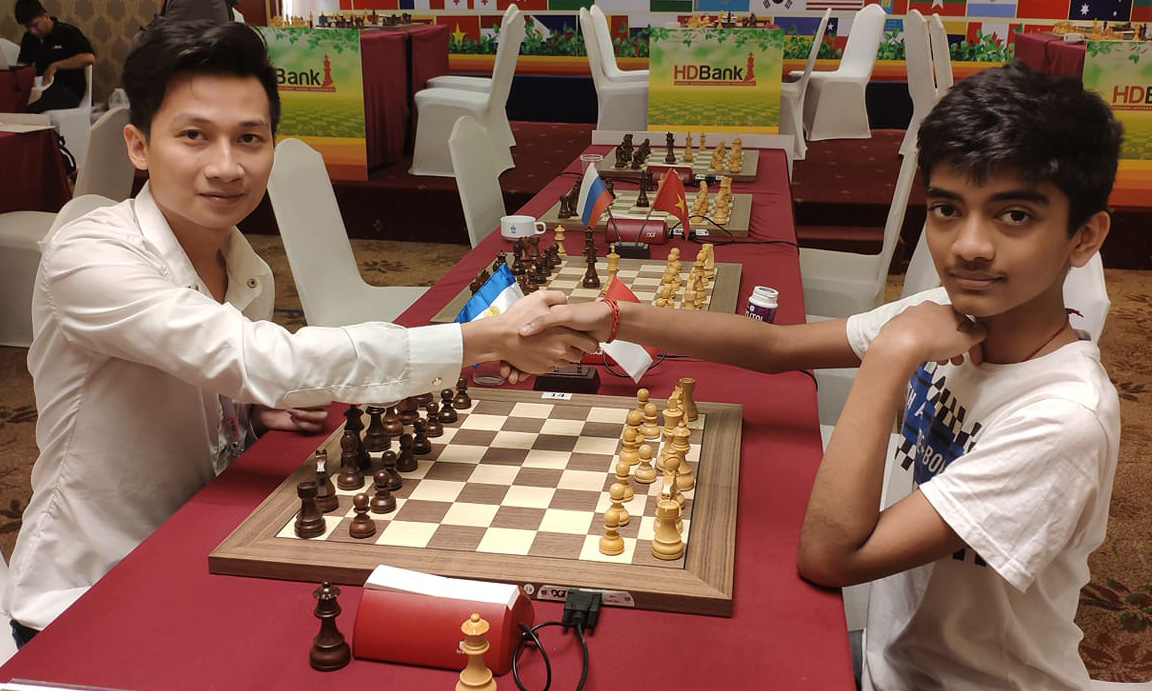Short answer: He’s never taken an IQ test and has refused to do so. Even Carlsen doesn’t know. So whatever number you read online is wrong. “I have no idea. I wouldn’t want to know it anyway. It might turn out to be a nasty surprise”, he said.
He’s not above 200, not 190, not 170, and not 120. Hakon Strand is a Norwegian AI/ML engineer, a chess player with a FIDE rating of 2171, and, more relevantly, a friend of Carlsen. In an answer from Quora, he said that Carlsen “consistently refuses to test his IQ, which is undoubtedly extremely high”. But does IQ matter?
Understanding Intelligence Quotient (IQ)
First of all, some of you might wonder what exactly IQ is. IQ stands for Intelligence Quotient, a standardized measure used to assess a person’s cognitive abilities in relation to others in their age group. It typically evaluates reasoning ability, problem-solving skills, memory, and overall intellectual capability. However, it’s important to note that IQ tests may not encompass all aspects of intelligence, and there’s ongoing debate about the accuracy and completeness of these assessments.
IQ tests typically include various types of questions and tasks designed to assess different cognitive abilities. Some common components or types of tests found in IQ assessments include:
- Verbal Reasoning: Questions that assess vocabulary, analogies, comprehension, and verbal logic. These tasks gauge an individual’s ability to understand and work with language-related concepts.
- Non-Verbal Reasoning: Tasks that involve visual puzzles, pattern recognition, spatial reasoning, and logical sequences. These tests evaluate problem-solving abilities using non-verbal information.
- Mathematical and Logical Reasoning: Questions involving numerical series, mathematical problems, mathematical reasoning, and logical deductions. These assess a person’s ability to apply logical reasoning to numerical and mathematical concepts.
- Working Memory: Tasks that measure short-term memory, attention, and the ability to retain and manipulate information temporarily.
- Processing Speed: Tests that assess how quickly an individual can process and respond to information presented to them.
IQ tests often contain a combination of these types of tasks, aiming to provide a comprehensive evaluation of an individual’s cognitive abilities across multiple domains.
Magnus Carlsen’s Views on IQ
Carlsen used to be asked a question about his IQ in an interview with ChessBase. He expressed that he neither knows nor desires to know his IQ score. “I have no idea. I wouldn’t want to know it anyway. It might turn out to be a nasty surprise”, he said.
He jokingly mentioned that discovering a high IQ might be an unpleasant surprise. Carlsen emphasized that while concentration is essential for a chess player, excessive intelligence could potentially hinder rather than help. He cited John Nunn, a mathematician and chess player, as an example, suggesting that Nunn’s extraordinary intelligence and academic achievements may have distracted him from achieving the world championship in chess. Carlsen contrasted himself, stating that he sees himself as a regular person and even suggested that his father might be more intelligent than he is. “I am a totally normal guy. My father is considerably more intelligent than I am”, quoted by Carlsen.
In short, Carlsen says intelligence isn’t everything in chess. He also highlighted the potential drawbacks of excessive intelligence and the need for balance in pursuing chess excellence.
Are chess players smart?
So, Carlsen’s right or wrong? The best chess player in the world downplayed the importance of intelligence in chess. That’s crazy, right? But it’s also true. The number three player in the world at the time of writing, Hikaru Nakamura, used to take an online and unofficial IQ test. And his result was only 102. If he has time to practice, I’m sure his result will be better.
As for the relation between higher IQ and better chess players, it’s a topic that’s been discussed but doesn’t have a straightforward answer. While chess involves strategic thinking, pattern recognition, and calculation—skills often associated with higher intelligence—there’s no direct correlation between IQ and chess proficiency.
Many exceptionally skilled chess players may have above-average IQs, but IQ alone doesn’t determine chess mastery. Success in chess involves a multitude of factors beyond raw intelligence, such as:
- Experience and practice: Dedicated practice, study, and exposure to different positions contribute significantly to a player’s skill.
- Pattern recognition and memory: Chess involves recognizing patterns and recalling previous games or positions, which can be honed through practice rather than solely relying on innate intelligence.
- Strategic thinking and decision-making: While intelligence may aid in strategic planning, practical decision-making during a game often comes from experience and training.
- Psychological aspects: Factors like temperament, emotional control, and psychological resilience play crucial roles in high-level chess games.
In essence, while a higher IQ might offer certain advantages in learning and grasping chess concepts, it doesn’t guarantee success in the game. The mastery of chess involves a combination of skills, experience, dedication, and specific cognitive abilities that go beyond what a standardized IQ test can measure.
Other factors contributing to Carlsen’s success
Magnus Carlsen’s success in chess is attributed to various factors beyond intelligence or IQ. Here are some crucial elements contributing to his success:
- Exceptional Memory and Pattern Recognition: Talking about Carlsen’s exceptional memory is unessential, right? Well, one of the best poker players of all time, Daniel Negreanu, used to tell this story about his impression of Carlsen. “I watched this one video with him where, like, they showed him a board and they’re like, “What game is that from?” He’s like, “That was in 1976, 40 years ago”. I’m like, dude, that’s insane. This is a sharp guy”. Carlsen possesses remarkable memory and pattern recognition skills, allowing him to recall previous games, positions, and patterns, a crucial advantage in chess.
- Adaptability and Flexibility: He demonstrates adaptability by playing various styles and adapting to different opponents. Carlsen can switch between aggressive and positional play, adjusting his strategy based on the situation.
- Psychological Resilience: Carlsen’s mental toughness is evident in his ability to handle pressure, recover from setbacks, and stay composed during critical moments in matches, contributing to his success in high-stakes games.
- Work Ethic and Dedication: His dedication to improvement through consistent practice, analysis of games, and continuous learning has been crucial in maintaining and refining his skills.
- Competitive Instinct: Carlsen possesses a strong desire to win, even in seemingly equal positions, especially in endgame, allowing him to capitalize on opponents’ mistakes and play for victory in any situation.
- Physical Fitness and Endurance: Carlsen emphasizes physical fitness, believing it contributes to mental sharpness and stamina during long, grueling games or tournaments.
- Support System: Having a strong support system, including trainers, seconds, and advisors, contributes to Carlsen’s preparation and strategic planning.
Overall, Magnus Carlsen’s success in chess is a culmination of diverse factors, including his exceptional skills, mental resilience, dedication to improvement, adaptability, and a deep understanding of the game’s dynamics, all of which have helped him to the best of the chess world.
In summary, Carlsen’s perspective suggests that while intelligence plays a role in chess, success in the game involves a combination of diverse factors that go beyond what an IQ test can measure. His success is a culmination of exceptional skills, mental resilience, dedication, adaptability, and support, contributing to his status as the best in the chess world.

I’m Xuan Binh, the founder of Attacking Chess, and the Deputy Head of Communications at the Vietnam Chess Federation (VCF). My chess.com and lichess rating is above 2300. Send me a challenge or message via Lichess. Follow me on Twitter (X) or Facebook.


1 thought on “What is Magnus Carlsen’s IQ?”
Comments are closed.